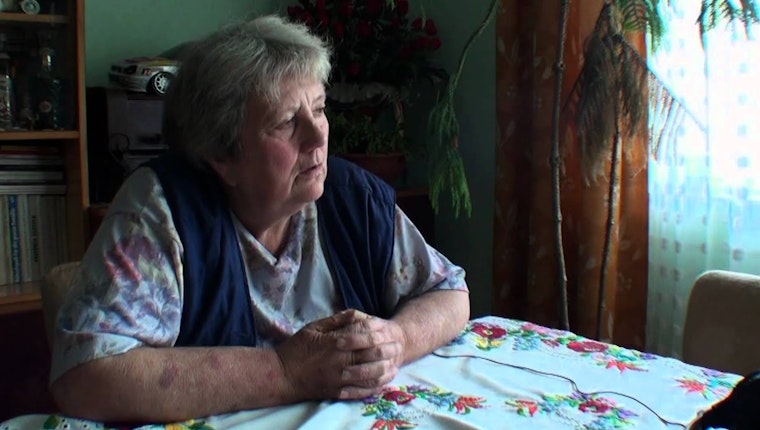Hungary’s Invisible People
By Judith Klein

This new documentary, The Invisible, by the Hungarian Civil Liberties Union offers a clear and moving message of why societies should not lock up people with intellectual disabilities. As the film notes, we still have hundreds of institutions in so-called civilized Europe in 2011 because these places are very convenient. Convenient, that is, except for the people who are forced to live in the institutions.
It is astounding that in this day and age, families in Hungary still can’t get the support they need to keep their disabled family members at home with them. Families face the Hobson’s choice of institutionalizing their loved ones or poverty—after all, someone needs to stay at home and provide care since there are so few community-based support systems.
In the film, Lazslo Bass, a sociologist at ELTE University in Budapest, talks about asking families of people who have intellectual disabilities about their biggest challenges. He says, “It is shocking that the first on the list is poverty.” Dr. Eszter Markus, a lecturer at the ELTE University, Special Education Department, speaks of the total lack of support and hopelessness families face: “They cannot find day care or kindergarten, later they cannot find schools or any other type of day program. After a while, families are forced to place their children or adult in an institution.”
It is clear that the Hungarian government has no intention of changing the status quo. This fact, while depressing beyond belief, is no longer a surprise.
A former Member of Parliament, who requested anonymity, described the situation in the film:
It is in the interest of the village to have as many state jobs as possible, and large institutions provide employment to many people. It is in the mayor's interest not to mess with these jobs and often these mayors sit in the Parliament...The lobby against deinstitutionalization is very clear in Parliament where any initiative to promote change is dropped before it is ever presented for a vote. Municipal resistance is very real and very strong…In such cases, the Parliament tends to place the subsistence of locals above the interests of the intellectually disabled. There was never a difference of opinion between political parties on this issue, there was always a very real unspoken consensus on the matter.
So the real reason that community-based services are not being developed nationwide and institutions are not being phased out in Hungary is politics as usual. The status quo is so rock solid that it does not even fluctuate with partisan differences; everyone just agrees. That is highly unusual on any issue in government.
The problem with the consensus here is that it has an exorbitant human cost. People who have been institutionalized are very often deeply traumatized by the experience. There is so much evidence that institutionalization kills the hopes and dreams of its survivors. This is very aptly described by former residents with first hand experience. One person in The Invisible describes his experience:
They sedate you, they shove injections in your behind and then you sleep from it. And later you will be angry, you'll beat and hit yourself… Sanyi put me in the cage bed and that's it. Nothing. That's it. He put me in the cage bed, and that's it. And after they beat me. Here, on my forehead and here, and on my nose and everywhere. They hit me in the nose, they hit me everywhere they could. They punched me in the stomach and stuff. And I was very skinny. They didn't give me food.
It is horrifying to realize that in spite of very clear claims of grave physical and emotional abuse and neglect in the institutions—with live survivors able to testify about it—there will be no justice in this case, nor in any of the other thousands of cases. Those who committed the torture will not be punished, the director of the institution will not be held to account. This would never be the case if the survivors were not intellectual disabled. But because they are “the invisible,” it is acceptable for them to be so often the victims of unspeakable, unpunished crimes. As in many countries, in Hungary the label of “intellectual disability” comes complete with a “second class citizen” status.
What would it take to change all of this? As the narration at the end of The Invisible points out, this is not rocket science:
Twenty years after the change of regime, thirteen years after the decision to deinstitutionalize and seven years after joining the European Union, the time has come to provide a new answer to the question of where the place is for people with intellectual disabilities in our society. Today, we see them as helpless children and spend millions to segregate them in an inhumane institutional system. However, if the opportunity presents itself they could be our equals as neighbors and colleagues and they could be free citizens with a voice in decision-making.
It’s as simple as that.
Until March 2019, Judith Klein was a senior adviser to the Open Society Public Health Program.